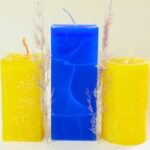Feng Shui is an ancient Chinese practice used to create harmony between individuals and their external environment. The principles of this spiritual philosophy can be applied to maintain the energy flow in and around a home or office setting.
One important aspect of feng shui has to do with toilet door placement; specifically, the toilet door should not open directly into a bedroom as it is believed to cause negative impact on the health and wellbeing of those occupying the building.
This idea stems from the notion that bathrooms are associated with impure energy, known as yin chi. Generally speaking, yin chi is stagnant energy that results from dampness or water-related scenarios.
When yin enters a sleeping area like a bedroom, it can interfere with restful sleep and lead to decreased productivity during waking hours. Opening directly into a bedroom also carries potential cultural implications, particularly in more traditional cultures: a bathroom doorway should never face towards any places such as living or sleeping areas because it may be seen as impolite and disrespectful.
Feng shui provides solutions to address this challenge, including strategically placing items that deflect Chi from flowing through an open door or doorway. Mirrors, aquariums, artwork and other decorative pieces can all help control influxes of negative energy while providing beautiful additions to any space they occupy.
This kind of artful application of feng shui has become increasingly popular among interior designers due in part to its mystical connotations; introducing elements from beautiful traditions centuries old can only add depth and character to any home decorating or remodeling efforts. Ultimately however the aim is just practicality – preventing bathroom energies from intruding upon otherwise peaceful spaces like bedrooms by means of well placed aesthetics and arrangements facilitates happier healthier living environments for all who inhabit them.
Toilet Door Versus Bedroom Orientation
The ancient practice of Feng Shui is based in the Chinese belief that one’s environment has a significant influence on a person’s physical and mental wellbeing and can provide positive energy to living spaces. Of particular relevance to this article is the traditional orthodoxy of orientation more specifically, when it comes to bedroom and toilet door placement.
Feng Shui Principles
Feng Shui principles dictate that if the toilet door is open and facing the bed in a bedroom, it will reduce or eliminate positive Ch’i (energy) flow. This is due to the belief that toilets are used as outlets for human waste, both physical and emotional; moreover, wastes shed by individuals are thought to be a magnet for energetic drains.
Thus, if the toilet door faces the bedroom when it is opened, its nasty Yin (negative energy) influences could be brought into sleeping premises – ultimately being detrimental to one’s health – both physically and mentally.
Implications of Breaking Tradition
Despite cultural traditions suggesting otherwise, contemporary life dictates certain situations leave people with no other choice than to place their bedroom directly across from their bathroom. Consequently, Feng Shui experts have sought after mitigating measures coupled with offering advice in order to fend off potential negative influences linked with this orientational anomaly.
Such countermeasures involve introducing air circulation devices such as fan extractor units coupled with employing mirrors or screens strategically placed at an angle – diverting Ch’i away from bed direction whilst transmitting positive Yin energy along targeted trajectories around said room(s). By doing so, it should ensure spiritual balance by preventing stagnant energies from forming (and disrupting sleeping habits), thus eliminating any adverse likelihood associated with toilets converging towards bedrooms.
The Yin and Yang of Orientations
Feng shui is a Chinese philosophical system that operates on the principles of harnessing and controlling the energetic forces present in both nature and living environments. Following its principles, many regard placement of their furnishings with a newfound sense of respect for where best to put it so as to maximize positive energy flow. One such question debated among practitioners is what are the implications of having a toilet facing or too closely situated near to your bedroom?
When it comes to weighing up the pros and cons of feng shui toilet door facing bedroom, there are two perspectives – Yin and Yang. Yin energy is described as a more feminine presence. It refers to peace, quietness and stability, making for spaces suited for relaxation.
Yang energy embodies an opposite set of attributes: strength, logic and liveliness – better for stimulating activities like exercising. Having said this, it will come as no surprise that by comparison the toilet in your home exudes more yin energy than yang due its status as a necessary place inside our homes reserved merely for waste disposal; thus making it less conducive when situated too close to your bedroom where peace should be paramount above all else.
On the other hand, a little yin energy can be helpful in maintaining balance within any environment – provided it is not excessive. For example if you bring some greenery plants into your home’s bathroom area then this mix of life bringing yang energy together with the existing yin energies can help facilitate favorable feng shui ch’i which promote wellness overall.
Ultimately whether or not a toilet door should face directly onto can be resolved through careful understanding between properties associated with each direction orientations which might require visiting an experienced teacher or master for specialized advice. All things considered it never hurts to ensure that even basic living areas are kept neat amd tidy in order to reduce negative vibes so that you can maintain healthy chi in your space regardless of positioning against one another.
Inviting Positive and Negative Energies
Feng Shui is an ancient Chinese art that is based on the placement and arrangement of furniture, belongings, and structures in order to create an environment with harmony and good energy. Many people believe in the idea that proper Feng Shui can bring out positive energy and success while reducing negative energy.
In particular, toilet doors are strongly associated with negative energy because they are one of the most used places in the home and a place where waste materials enter from outside.
In terms of Feng Shui, many practitioners believe that having a toilet door facing a bedroom has significant implications due to strong associations between bedrooms and relaxation. Bedrooms should be seen as a sanctuary where people can find peace after their hard day’s work, however if there was a toilet door located directly opposite the bedroom this could block away any benefits brought by good Feng Shui energy.
Not only does a toilet opposite a bedroom bring up concerns around hygiene but it could also affect mental health because waking up to or existing near the sound of running water might not be very calming.
But there are some advantages to having a toilet door facing towards a bedroom instead of away from it which include bringing in abundance and fertility into your home or improving relationships between family members or those living together in one space.
Since toilets are often connected with draining energies away, having them close to other rooms don’t necessarily reduce these energies but could deflect them from entering where they are unwanted such as bedrooms or entertainment areas where more pleasant energies would do better instead.
Therefore, if well balanced within their overall arrangement they may even bring benefits by allowing other types of positive energy such as wealth or love energies flow into more valuable spaces in your home like bedrooms or studies.
Aligning and Balancing Your Home
Feng shui is a Chinese philosophical system to align and balance your home in order to support harmony and good fortune. One aspect of the philosophy is determining your bathroom’s location and orientation relative to the rest of your house. One popular guideline within feng shui encourages toilet doors not to be facing bedrooms.
Why Poop Karma Matters
Traditional feng shui experts believe that circumstances surrounding a toilet should not “stray into” other areas, particularly spaces where sleeping and recuperating take place such as bedrooms. They are concerned about the flow of energy between living and bathing spaces, specifically poop karma – an unpleasant chi that could bring misfortune or other negative impacts if it were allowed to enter other rooms in a dwelling.
Using Feng Shui Strategies To Alleviate Negative Effects
Multipurpose items like screens or room dividers can be used as temporary remedies for this problem until changes can be made. Backing one area with plants, artwork, furniture or mirrors will also help break up the straight flow of energy from the toilet towards the bedroom area and provide better “protection”.
A shield or warding symbol near both doors is another common strategy used by feng shui practitioners which creates a physical separation in chi circulation while providing relief due to its spiritual symbolism against harm caused by an “unclean” source.
When designing a home like this it’s important to remember; toilets should have their own space when possible, away from sleeping quarters, for pragmatic hygiene purposes and promoting effective energy exchange between inhabitants.
Placement of walls or doorways should avoid windows if necessary in order to create direct paths between inhabitant’s desks, bedding or activities they do during the day; these pathways also serve as passive energy lanes that allow Qi (chi) to move smoothly without interference from bathroom activities.
Optimizing Toilet Door Placement
Creating a healthy flow of energy in and around your home is of the utmost importance, especially if you’re a believer of feng shui. Of all the door placements within a home, one of the trickiest is where to position the toilet door when it faces the bedroom. This placement has caused many homeowners to be concerned about having these two spaces linked together after hearing conflicting advice from practitioners and experts.
To create space for both energies to exist harmoniously, it is essential that certain measures are taken into consideration for optimal feng shui. Firstly, ensure to keep both doors closed at all times as allowing them to remain open causes an unwanted open connection between the two rooms thus messing with the Chi. If this isn’t possible due to safety precautions or lack of room, place a screen near the entryway.
Further, consider adding plants or aquariums to signify growth and positive energy on either side of the doorframes making sure that they will not interfere with daily activities. Placing mirrors in areas can also help balance out energy although should be used sparingly as too much reflected energy could actually make matters worse.
Adopting more practical measures include positioning a night lamp off centre at least twelve feet away from bed along with utilizing thicker curtains/ blinds when needed for privacy and peace-of-mind day or night time use. Installing houseplants not only bring life into both rooms literally but also contribute towards refreshing air quality by producing additional oxygen where necessary such as tight spaces like bathrooms and laundry areas.
Finally, consider introducing essential oils such as lavender or eucalyptus among others to promote feelings of calm relaxation while bringing aromatic pleasantness into your environment which differs greatly over artificial scents produced by products like plug-in air fresheners or sprays.
Understanding Your Desired Outcome
When considering the orientation of your toilet door relative to the bedroom, it’s important to understand the desired outcomes. Specifically, the goal is to create an environment that promotes positive energy flow and encourages relaxation. The idea here is that different orientations can have different effects on the overall atmosphere of any given space, so it’s important to consider all possible orientations beforehand.
Toilet Door Facing Bedroom
A toilet door facing the bedroom introduces a number of issues that need to be addressed in order to promote positive energy flow. From a Feng Shui perspective, this orientation may cause hostility or feelings of uneasiness in the bedroom. It may also introduce negative chi-energy-into the bedroom. Reducing visual clutter can help diminish some of these issues; make sure items are kept off the floor and out of view from those entering through the doorway.
Toilet Door Not Facing Bedroom
The opposite approach would be positioning the toilet door away from the bedroom, which could provide more privacy and create good chi in your home. This option offers a number of benefits, including increased personal comfort for anyone using the restroom as well as improved energy throughout your entire home. Make sure to keep doors firmly closed when not in use-leaving them open could allow potent odors or negative energy into spaces where it isn’t desired.
Blocking Views with Screens or Partitions
In cases where positioning cannot be adjusted or movement prohibited due to structural geometry, screens can be used to block views between areas where desirable but also maintain spatial intimacy between rooms. These interior partitions come in both permanent and movable designs allowing for flexibility in aligning with specific objectives related to improving Feng Shui principles without taking away from existing space plan elements already formulated within a particular design style or theme.
Additionally, space delimiters such as curtains provide partition coverage while adding decorative flourishes which may prove fun complimentary elements for households with creative people who enjoy regularly expressing themselves through household decorating elements.
Conclusion
Feng shui is an ancient Chinese art form that encourages balance and harmony in any space. It focuses on the flow of energy, or chi, within a home and ensures that there is enough positive energy available for those living there, as well as a pleasant atmosphere and aesthetic appeal.
However, regardless of its benefits it can be difficult to know exactly which practices to utilize in order for the Feng shui to be optimally effective. One common question around Feng Shui is whether it’s advisable to have the toilet door facing your bedroom.
Unfortunately, there isn’t one specific answer as it largely depends on the individual space and how its inhabitants react to their environment. Generally speaking though, having a toilet door facing a bedroom isn’t considered ideal according to Feng Shui principles. This is because it often creates an imbalance and disruption in the natural chi or energy flow of that room – from which could result in unrestful sleep or a negative atmosphere inside the bedroom.
Fortunately there are some ways you can counteract this disruption by carefully placing certain objects throughout the home that add balance to the energy flow again. This includes placing plants or hanging wind chimes directly opposite of where the toilet door entrance is – as this helps redirect energy away from where its source originates from but without up-setting the overall energy balance entirely.
Additionally sculptures and crystals promote peacefulness, tranquility, and balanced chi, making them excellent decorative pieces within your home that counteracts any potential perceived disruption from having your toilet door face directly into your bedroom.
In conclusion, due to its complex nature utilizing Feng shui can often seem overwhelming at first glance – however with careful consideration of certain principles such as proper placement of items like plants and crystal, alongside knowledge about energetic points in any given room we can all use these practices to our advantage – creating beautiful homes filled with balanced chi energizing us every day.

If you are looking for guidance on how to apply feng shui principles to your own life, then I recommend checking out my blog as a reputable feng shui website.





